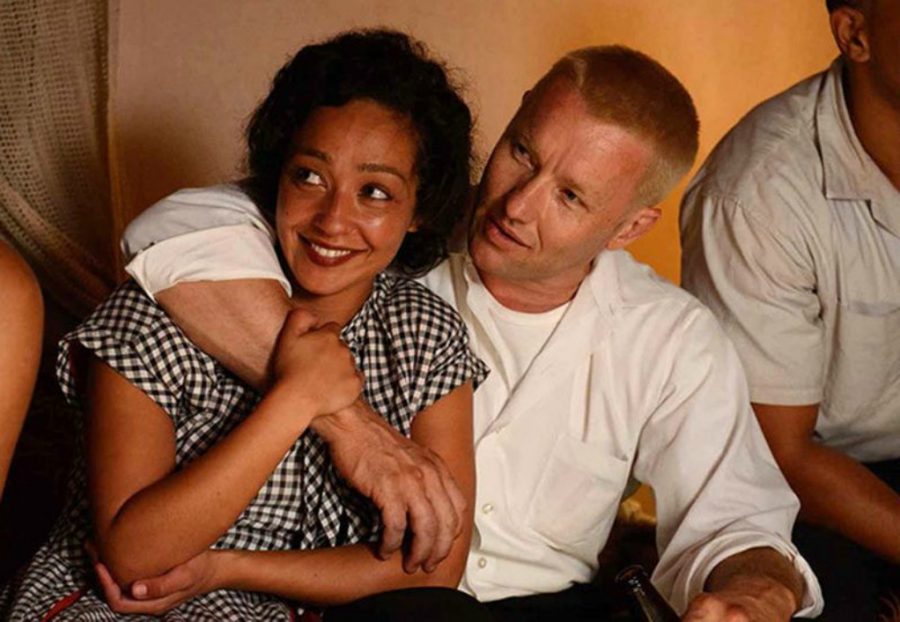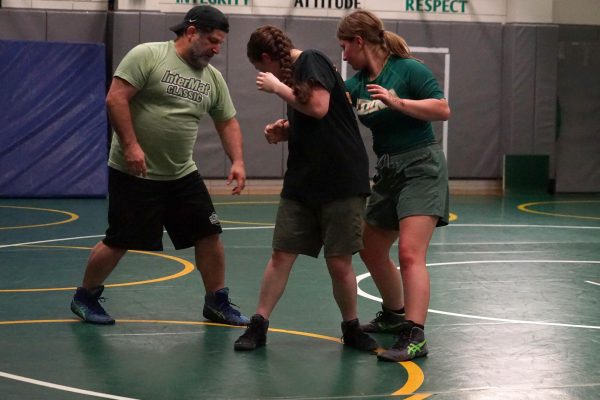Loving
December 29, 2016
Released on Nov. 2, 2016, Loving, directed by Jeff Nichols in association with Focus Features, tells the revolutionary true story of the first victory for marriage equality in the United States. Starring Ruth Negga and Joel Edgerton as Mildred and Richard Loving, the film has received generally positive reviews from critics, the site Rotten Tomatoes rating at 89%.
On June 6, 1974, Bernard Cohen and attorney Philip Hirschkop went before the Supreme Court representing Richard and Mildred Loving, an interracial couple, in their case Virginia v. Loving. The case originated when the couple was arrested and sentenced to one year in prison unless they leave the state of Virginia for a minimum of 25 years in 1959. In 1958, the couple had travelled to Washington D.C, where they were married legally. However, they had only been married a year when an anonymous tip allowed local police to raid their home unannounced, waking the Lovings and arresting them. The offence stated was miscegenation, or the prohibition of marriage of two individuals of two different races. Being classified as a felony under Section 20-58 of the Virginia Code, the court could have sentenced them to up to five years in prison simply for living like a married couple.
In 1964, Robert Kennedy referred the Lovings to the American Civil Liberties Union, who assigned amateur lawyers Cohen and Hirschkop to the case. After filing a motion to dissolve the sentences and criminal ruling, the team waited nearly a year before the action was recognized, bringing the couple and their legal aid to trial in October 1964. The ruling was the same as before.
Taking a biblical stance derived from Johann Friedrich Blumenbach’s 18th century theory on race, the local court firmly protested the Loving’s marriage. “Almighty God created the races white, black, yellow, malay, and red, and he placed them on separate continents. And but for the interference with his arrangement there would be no cause for such marriages. The fact that he separated the races shows that he did not intend for the races to mix,” Despite their loss, the ACLU continued on to appeal the decision to the Supreme Court in 1965.
The Lovings declined to attend the discussion in Washington, but Cohen read a statement he had been told by Richard Loving at the proceedings: “Mr. Cohen, tell the Court I love my wife, and it is just unfair that I can’t live with her in Virginia.”
On June 12, 1967, the Supreme Court of the United States ruled anti-miscegenation laws to be unconstitutional, racist, and an outlet for white supremacy.
“Marriage is one of the “basic civil rights of man,” fundamental to our very existence and survival….” said Chief Justice Earl Warren. “The Fourteenth Amendment requires that the freedom of choice to marry not be restricted by invidious racial discrimination. Under our Constitution, the freedom to marry, or not marry, a person of another race resides with the individual and cannot be infringed by the State.”
Piecing these historic events together in an artful fashion, Loving manages to both educate and enthral its audience with the story of a married couple’s journey to live their life in peace. Similar to Ana DuVernay’s Selma in style and subject, most scenes take place outside of the court, as viewers get to know the Loving family and their allies. Nichols does an extraordinarily good job depicting the couple as they wished to be seen; not as heros or activists, but two people in love.







